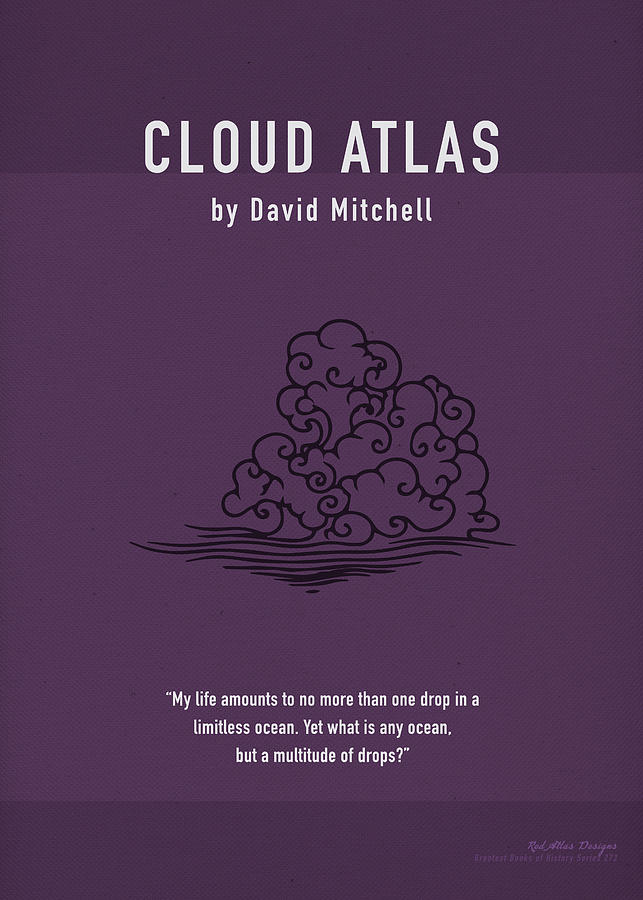

He isn't afraid to jerk tears or ratchet up suspense - he understands that's what we make stories for. Sonmi herself has become the goddess of the Valley Tribes of Zachry, although the Prescients - who have preserved a hologram of her "orison", or recorded testimony - say she was a "freakbirthed human who died hun'erds o years ago".Ĭloud Atlas is powerful and elegant because of Mitchell's understanding of the way we respond to those fundamental and primitive stories we tell about good and evil, love and destruction, beginnings and ends. They are linked by other artifices - Frobisher finds both parts of Adam Ewing's Pacific diary Luisa Rey acquires both Frobisher's letters and a rare gramophone record of the Sextet Cavendish is sent "The First Luisa Rey Mystery" by its author Sonmi's dying request is to watch an old half-viewed film of "The Ghastly Ordeal of Timothy Cavendish", to see what happened. Each has a charac ter with a birthmark like a comet, as though they might be different incarnations of the same soul or different forms of the same cloud of molecules, as we all are.

The stories are all very intensely first person - apart from "Half-Lives - the First Luisa Rey Mystery". The novel opens with one ship - the Prophetess - and ends with another ship that contains the survivors of Civ'lise, the Prescients. The sixth, and central one, is the storytelling voice of Zachry, a tribesman after the fall of the civilised world, who is back in the Pacific islands where the linear narrative began. The fifth is the pre-execution testimony of Sonmi-451, a cloned slave in some future state, who has acquired intelligence and vision. The fourth voice is Timothy Cavendish, a 1980s London vanity publisher, trapped in an old people's home near Hull. This Californian thriller is the tale of Luisa Rey, a journalist who uncovers a corporate nuclear scandal and is at constant risk of assassination. Frobisher's tale is told in a series of letters to his lover, Rufus Sixsmith, who later appears as a nuclear scientist in Reagan's California in the 1970s. This narrator, Robert Frobisher, composes the Cloud Atlas Sextet "for overlapping soloists" on piano, clarinet, cello, flute, oboe and violin, "each in its own language of key, scale and colour". The second is about a young British composer in 1931, who cons a dying genius into taking him on as an amanuensis, and then makes love to his wife and daughter.

The first tale is about a 19th-century American lawyer, Adam Ewing, crossing the Pacific in 1850, meeting Maoris and missionaries, a seedy English physician and some nasty sailors.


 0 kommentar(er)
0 kommentar(er)
